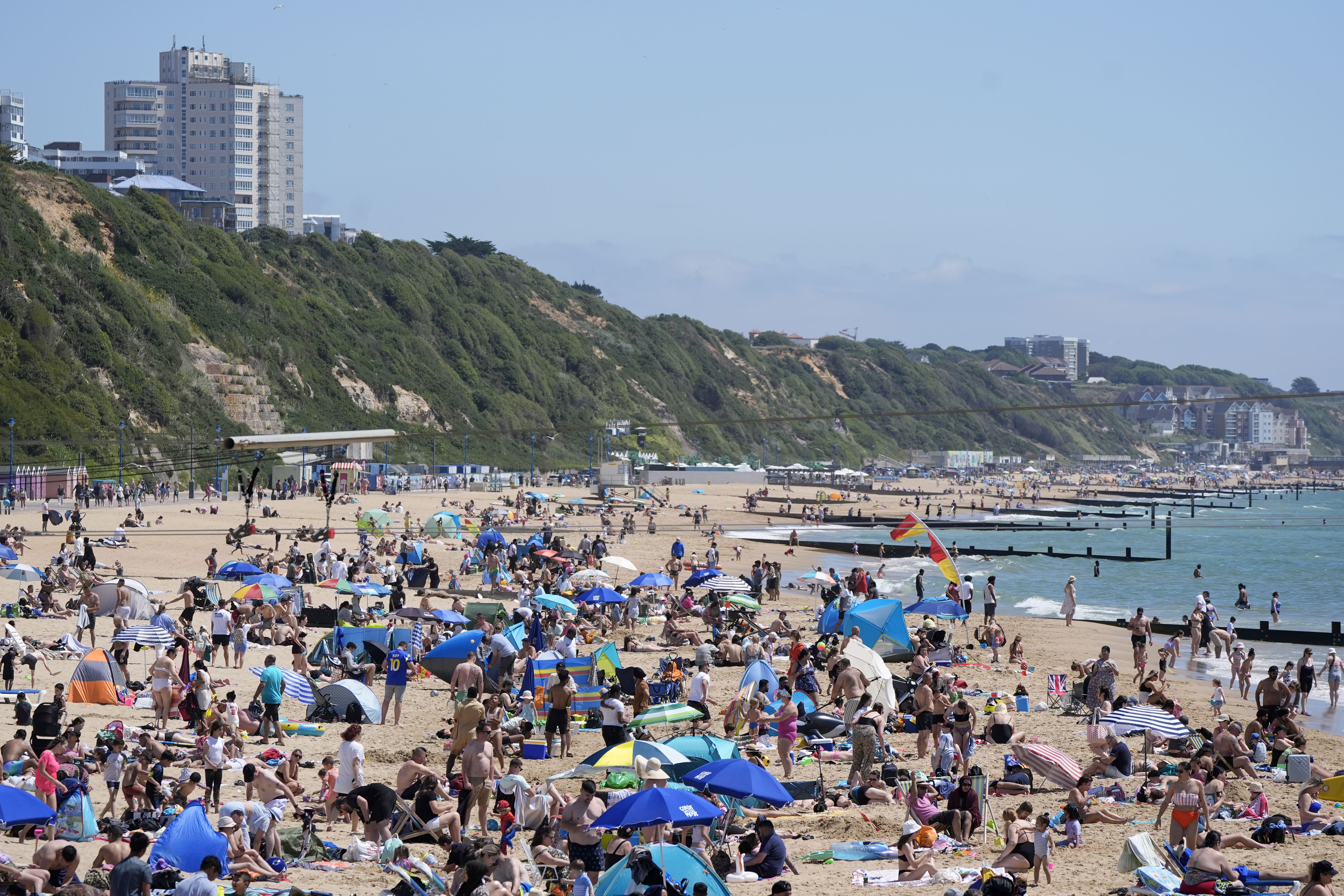Swimmers warned about ‘cold’ water as air temperatures could hit 27C next week
Two children died this week in open water.

Your support helps us to tell the story
From reproductive rights to climate change to Big Tech, The Independent is on the ground when the story is developing. Whether it's investigating the financials of Elon Musk's pro-Trump PAC or producing our latest documentary, 'The A Word', which shines a light on the American women fighting for reproductive rights, we know how important it is to parse out the facts from the messaging.
At such a critical moment in US history, we need reporters on the ground. Your donation allows us to keep sending journalists to speak to both sides of the story.
The Independent is trusted by Americans across the entire political spectrum. And unlike many other quality news outlets, we choose not to lock Americans out of our reporting and analysis with paywalls. We believe quality journalism should be available to everyone, paid for by those who can afford it.
Your support makes all the difference.Britons have been warned to be wary of “cold” open water with 27C temperatures set to hit parts of the country next week.
Most areas will see a mixed bag of sunshine and showers over the next few days before temperatures start to climb from Sunday, with the Royal National Lifeboat Institution (RNLI) reminding people to head to beaches overseen by lifeguards if they wish to swim.
It comes after two boys died this week in open water, including eight-year-old Joshua Hillstead, who was pulled from the River Arrow, in Alcester, Warwickshire, and a 16-year-old who was found in Lodge Farm Reservoir, Netherton, in Dudley.
Temperatures peaked at 31.9C in London’s St James’ Park last Friday, making it the hottest day of the year so far, with much of the country remaining warm as the summer holidays began.
Met Office forecaster Greg Dewhurst said: “There are signs that as we get to Sunday, Monday and Tuesday temperatures will start coming up a bit again.
“Early next week maybe around 26, 27C across central and southern England.
“High pressure moves in on Sunday, then pushing eastwards and drawing in warmer air.”
He added: “At this time of year people head to the beach when the weather’s warm or off to local lakes and rivers.
“Be mindful that at this time of year the water’s still pretty cold, around 16, 17, 18C, it’s not like in the Mediterranean where it’s much warmer.”
Mr Dewhurst said there will be outbreaks of rain across large swathes of the country over the next few days.
However, it is set to turn brighter on Friday, with temperatures in parts of southern England possibly hitting 24C, he said.
Matt Croxall, charity director of the Royal Life Saving Society UK, said: “We tend to see an increase in drownings as the weather gets warmer and in light of the two recent tragic drownings we’ve seen, it’s more important than ever that everybody has the tools to enjoy water safely this summer and beyond.
“More than half of accidental drownings have occurred at inland open water sites – and many of these drownings occur due to a lack of knowledge and understanding of open water safety.
“By taking simple steps and following the Water Safety Code and making people aware of what they need to take into account before they get in, and when they are in the water will save lives – knowing the risks associated and your limits could make all the difference.”
Sam Hughes, RNLI water safety manager, said: “With the weather looking unsettled, we’re still expecting people during the school summer holidays to head to coastal locations.
“We’re reminding people to head for a lifeguarded beach and swim between the red and yellow flags.
“If you do find yourself in difficulty, remember float to live: tilt your head back with ears submerged and try to relax and control your breathing. Use your hands to help you stay afloat and then, once you are through the initial shock, call for help or swim to safety if you can.”